
07 April 2024
HEALTHY COMMUNITIES, HEALTHY WORLD: HEALTH TRANSFORMATION ON WORLD HEALTH DAY
Every year, World Health Day is commemorated as a significant moment to highlight the global challenges faced in efforts to create healthier communities. With the theme "Healthy Communities, Healthy World," World Health Day emphasizes the importance of cross-sector collaboration to achieve inclusive and sustainable health transformation.
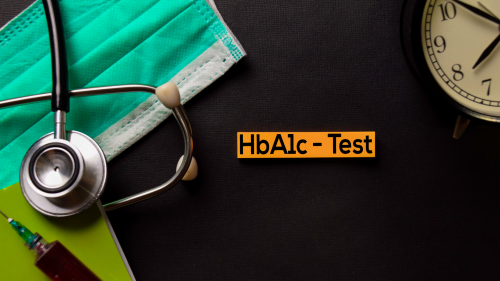
27 February 2024
UNDERSTANDING THE IMPORTANCE OF HBA1C TESTING IN DIABETES MANAGEMENT
Hemoglobin A1c (HbA1c) testing plays a pivotal role in the management of diabetes mellitus. This article provides a comprehensive overview of the importance of HbA1c testing in diabetes management. It elucidates the significance of HbA1c as a marker for long-term glycemic control, its role in diagnosing diabetes, monitoring treatment efficacy, and assessing the risk of diabetes-related complications.
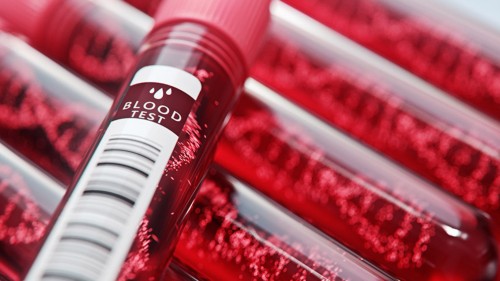
19 February 2024
HEALTH KEY: WHY IS BLOOD CHEMISTRY TESTING IMPORTANT?
Blood chemistry testing is a highly important medical procedure, delving into the complex chemical composition of blood to measure key parameters such as liver function, kidney function, glucose levels, cholesterol, and electrolytes in the blood. With its ability to detect diseases, monitor medical conditions, evaluate organ function, and assess treatment effectiveness, this test serves as a cornerstone in modern healthcare.
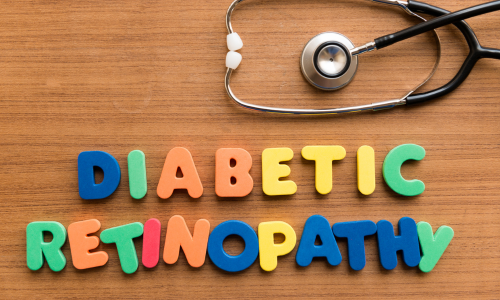
21 December 2023
UNDERSTANDING SYMPTOMS OF DIABETIC EYE DISORDERS
Diabetes poses a significant risk to eye health, potentially leading to severe conditions like diabetic retinopathy and faster-onset cataracts. Detecting early signs of these eye disorders is challenging but crucial for protection. Symptoms include blurry vision, sudden changes, light sensitivity, and peripheral vision loss. Early detection through regular eye exams by specialists is vital to prevent extensive damage. Controlling blood sugar levels, routine check-ups, and a healthy lifestyle are key preventive measures to manage diabetes and minimize eye-related complications.

17 July 2023
MAINTAINING FAMILY HEALTH THROUGH REGULAR HEALTH CHECK-UP
Maintaining family health is crucial for achieving a quality and harmonious life. One important step to take is regularly conducting health check-ups. Periodic health check-ups help in the early detection of potential health issues before symptoms arise, allowing for early intervention. They also aid in preventing the spread of communicable diseases among family members. Furthermore, health check-ups promote awareness of healthy lifestyles and reduce long-term healthcare costs.

07 April 2023
RECOGNIZING VARIOUS TYPES OF POINT-OF-CARE TESTS
Point-of-care testing, otherwise referred to as near-patient, bedside, or extra laboratory testing, is not new. Many of the early “diagnostic tests” were first done at the bedside. Over the past few years, however, analytical systems have been developed that enable a wide range of tests to be done quickly and simply without the need for sophisticated laboratory equipment. The key objective of point-of-care testing is to generate a result quickly so that appropriate treatment can be implemented.
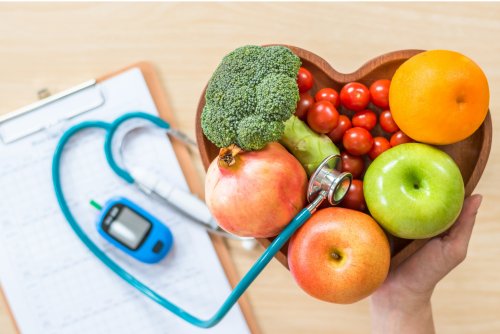
27 December 2022
HOW TO MONITORING BLOOD SUGAR PROPERLY
Diabetes is a condition that hinders the body’s ability to produce or use insulin. This hormone is responsible for enabling cells to use glucose in the blood as an energy source. Managing diabetes is more important to help manage this condition, people must control their blood glucose and aim to keep sugar levels within a healthy range.
14 December 2022
DIAGNOSTIC TESTS HbA1c FOR DIABETES
The HbA1c test, also known as the hemoglobin A1c or glycated hemoglobin test, is an important blood test that gives a good indication of how well your diabetes is being controlled. Together with the fasting plasma glucose test, the HbA1c test is one of the main ways in which type 2 diabetes is diagnosed. HbA1c tests are not the primary diagnostic test for type 1 diabetes but may sometimes be used together with other tests.
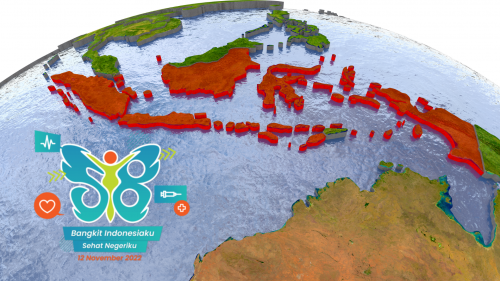
12 November 2022
National Health Day 2022
National Health Day is celebrated every November 12. Everyone can play a role in raising awareness of the importance of health, PT Isotekindo also plays a role in increasing health awareness by providing various types of medical devices that can be used for personal use or in health facilities.
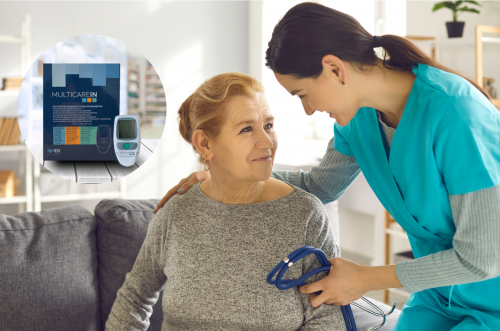
29 September 2022
HEALTHY LIFESTYLE FOR OUR HEART
Heart disease is a leading cause of death, but it's not inevitable. While you can't change some risk factors such as family history, sex, or age there are plenty of ways you can reduce your risk of heart disease. When you choose healthy behaviors, you can lower your heart disease risk while also preventing other serious chronic conditions like type 2 diabetes and some kinds of cancer.
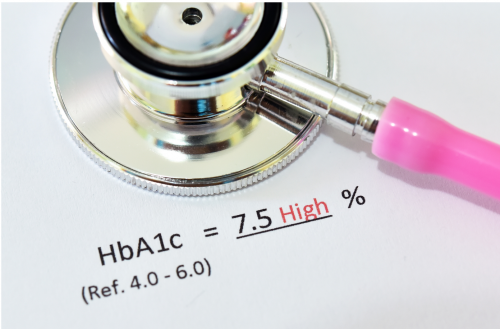
07 May 2022
WHAT CAN CAUSE "FALSE" DECREASE AND INCREASE RESULTS WHEN MEASURING HbA1C?
Currently, the government is intensively conducting HbA1c examinations at almost all health facilities in Indonesia. This attracts attention because there are still some people who do not know about the importance of HbA1c for monitoring diabetes. Although the sampling is not influenced by certain conditions such as fasting, there are still some conditions that can cause the measurement results to be false increase or false decrease
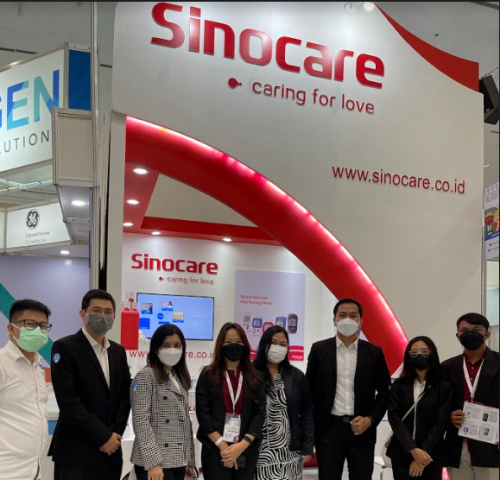
22 April 2022
HOSPITAL EXPO 2021 AT JAKARTA CONVENTION CENTER
The 33rd Indonesia Hospital, Medical, Pharmaceutical, Clinical Laboratories Equipment, and Medicine Exhibition has already been implemented on 26 – 29 January 2022 at Jakarta Convention Center. This event was attended by various parties including manufacturers, distributors as vendors and hospitals, health institutions, clinics individuals as well as participants. The event which lasted for 3 days was attended by more than 100 vendors who showcased their products.
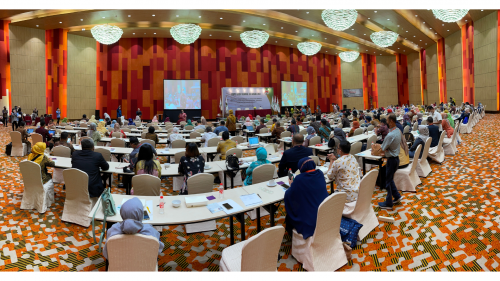
12 April 2022
NATIONAL CONFERENCE OF REGIONAL HOSPITAL ASSOCIATIONS (ARSADA) THROUGHOUT INDONESIA VII 2021
Regional Hospital Association (ARSADA) has held the VII National Conference of Regional Hospital Associations in Indonesia. Isotekindo Intertama actively participates in exhibitions held at the ARSADA National Conference, to introduce main products.

24 February 2022
THE IMPORTANCE OF NUTRITION INTAKE AND MEAL SCHEDULE FOR DIABETES
Patients with diabetes require a special nutritional diet to effectively regulate blood sugar levels while meeting their nutritional needs to achieve and maintain optimal metabolism, prevent chronic complications, and so on. In addition to a special nutritional diet, several other factors must be noticed.

07 October 2020
HIGH LEVELS OF KETONES IN YOUR BLOOD ARE A SIGN THAT SOMETHING IS WRONG
Large amounts of ketones build-up, blood acidity increases, and you have what is called diabetic ketoacidosis, or DKA for short, a medical problem that needs urgent treatment.
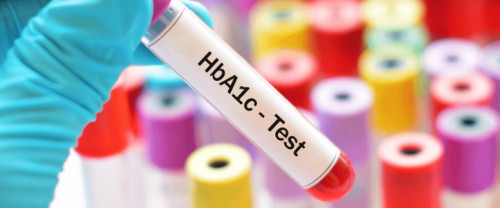
01 May 2019
HBA1C EXAMINATION IS ACCURATE, PRACTICAL AND AFFORDABLE
The higher the number of HbA1c means more hemoglobin binds to glucose, and this indicates that high blood sugar. If the HbA1c count exceeds 8%, you may have uncontrolled diabetes and are at risk for complications.

06 April 2019
DIABETES MELLITUS, THE SILENT KILLER
People with Diabetes Mellitus, from global and Indonesian data, have increased significantly from time to time. WHO estimates that globally 422 million adults aged over 18 years living with diabetes in 2014. The largest number of people with diabetes is estimated to come from Southeast Asia and the West Pacific, accounting for about half of diabetes cases in the world. Worldwide, the number of people with diabetes has increased substantially between 1980 and 2014, having increased approximately fourfold from 108 million to 422 million.




